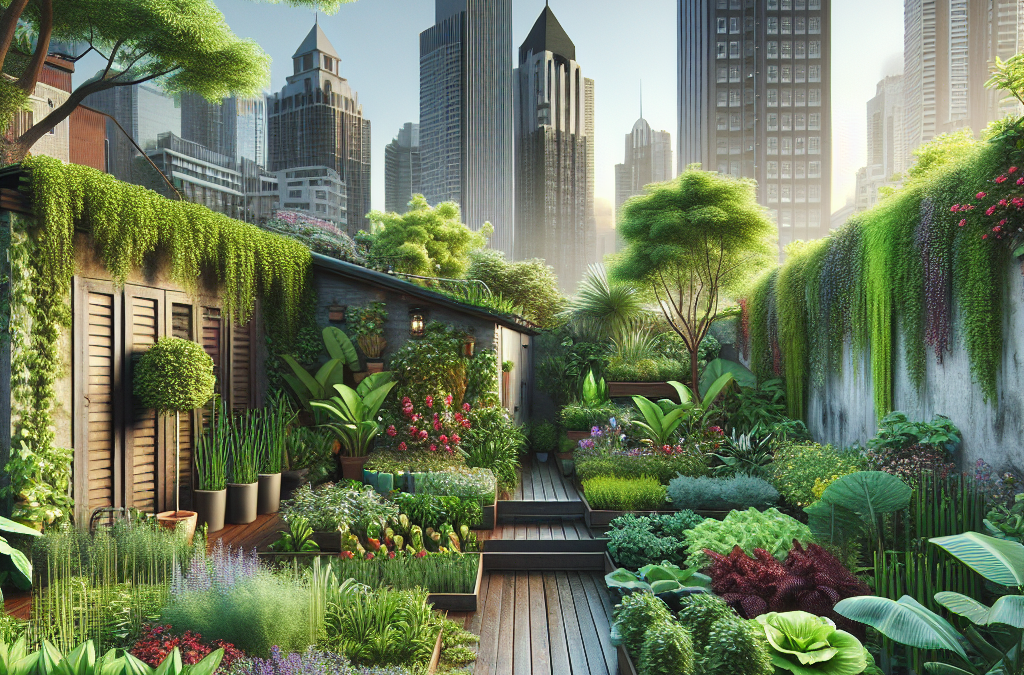Urban gardening has taken Portland by storm, transforming concrete jungles into lush, green sanctuaries. With the city’s commitment to sustainability and love for nature, it’s no wonder why residents are turning their backyards, rooftops, and even balconies into thriving gardens. Whether you’re a novice gardener or a seasoned horticulturist, understanding the basics of Portland urban garden installation is crucial to creating a successful and sustainable garden.
Urban gardens in Portland offer numerous benefits, including improved air quality, reduced urban heat, and a source of fresh, home-grown produce. These gardens also serve as a haven for pollinators, contributing to the overall health of the city’s ecosystem. Given the limited space typical of urban areas, innovative techniques such as vertical gardening, container gardening, and raised beds are often employed to maximize the use of available space.
As you embark on your urban gardening journey, it is essential to consider factors such as sunlight availability, soil quality, and water access. Portland’s climate, characterized by wet winters and dry summers, also plays a significant role in determining the types of plants that will thrive in your garden. Native plants and drought-resistant species are excellent choices that align with the local environment.
Feeling inspired to start your own urban garden? Contact us today to discover how our landscaping services can transform your property!
Benefits of Urban Gardening in Portland
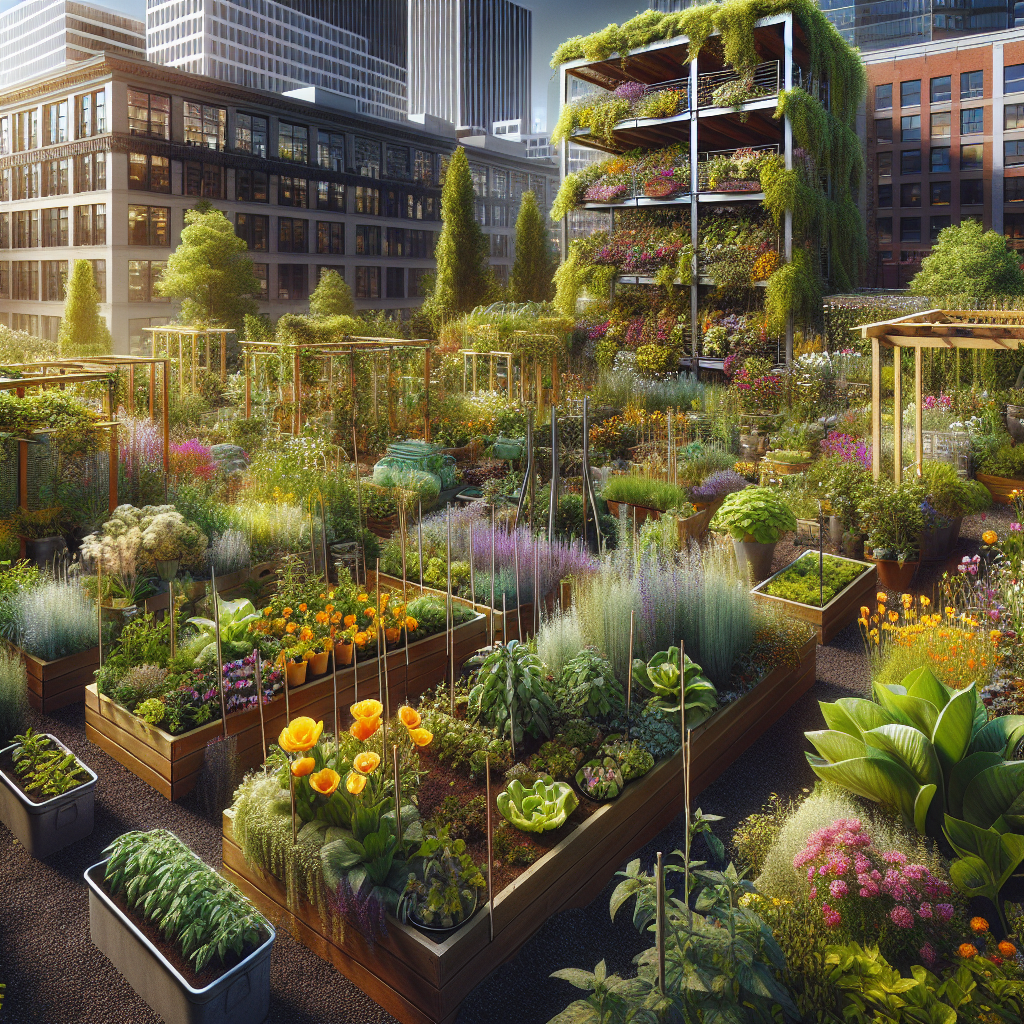
Urban gardening in Portland provides a plethora of benefits that extend beyond the aesthetic appeal of green spaces. One of the most significant advantages is the improvement in air quality. Plants act as natural air filters, absorbing pollutants and releasing oxygen, which helps mitigate the effects of urban pollution. This is particularly beneficial in densely populated areas where air quality can be a concern.
Another key benefit is the contribution to sustainable food systems. By growing your own fruits, vegetables, and herbs, you reduce the need for commercially grown produce, which often involves long transportation routes and significant carbon footprints. Home-grown produce is fresher, more nutritious, and free from harmful pesticides, making it a healthier option for you and your family.
Urban gardens also play a crucial role in climate regulation. The presence of plants helps to reduce the urban heat island effect, where concrete and asphalt absorb and retain heat, leading to higher temperatures in city areas. Gardens provide shade and cool the air through the process of transpiration, making urban environments more comfortable during the hot summer months.
Moreover, urban gardening fosters a sense of community and well-being. Community gardens become social hubs where neighbors can connect, share gardening tips, and work together towards a common goal. This can lead to stronger community bonds and a sense of pride in the local area. Additionally, gardening has been shown to have therapeutic effects, reducing stress and promoting mental health through physical activity and connection with nature.
Lastly, urban gardens support biodiversity. By planting a variety of species, you create habitats for bees, birds, and other pollinators, which are essential for a healthy ecosystem. This biodiversity is crucial for ecological balance and resilience against pests and diseases.
Choosing the Right Plants for Your Urban Garden
Selecting the right plants for your urban garden in Portland is crucial for ensuring a thriving and sustainable green space. Start by considering the climate and weather conditions of the Pacific Northwest. Portland experiences a mild, temperate climate with wet winters and dry summers. Therefore, it’s essential to choose plants that can thrive in these specific conditions.
One of the first steps is to assess the sunlight availability in your garden area. Most vegetables and flowering plants require at least 6-8 hours of direct sunlight a day. For areas with partial shade, consider planting leafy greens like lettuce, spinach, and kale, or shade-tolerant flowers such as hostas and ferns. Conversely, sunny spots are ideal for growing tomatoes, peppers, and sunflowers.
Another important aspect is the soil quality. Urban soils can sometimes be compacted or lack essential nutrients. Conduct a soil test to determine its pH and nutrient levels. Based on the results, you can amend the soil with compost, organic matter, or specific fertilizers to create an optimal growing environment. Raised beds or container gardening can also be excellent solutions for controlling soil quality and drainage.
When selecting plants, prioritize native and drought-tolerant species. Native plants are well-adapted to the local climate and soil, requiring less water and maintenance. Examples include Oregon grape, red-flowering currant, and western sword fern. Drought-tolerant plants such as lavender, rosemary, and succulents are also great choices, especially for conserving water during the dry summer months.
Additionally, consider the space and layout of your garden. Vertical gardening techniques, like trellises and wall-mounted planters, can maximize limited space and add visual interest. Choose compact or dwarf plant varieties that won’t outgrow your garden area. Incorporating a mix of perennials and annuals can ensure year-round color and productivity.
Lastly, don’t forget to think about pollinators. Incorporate plants that attract bees, butterflies, and other beneficial insects. Flowers like echinacea, bee balm, and milkweed can provide essential nectar sources, creating a vibrant and healthy ecosystem in your urban garden.
Step-by-Step Guide to Garden Installation
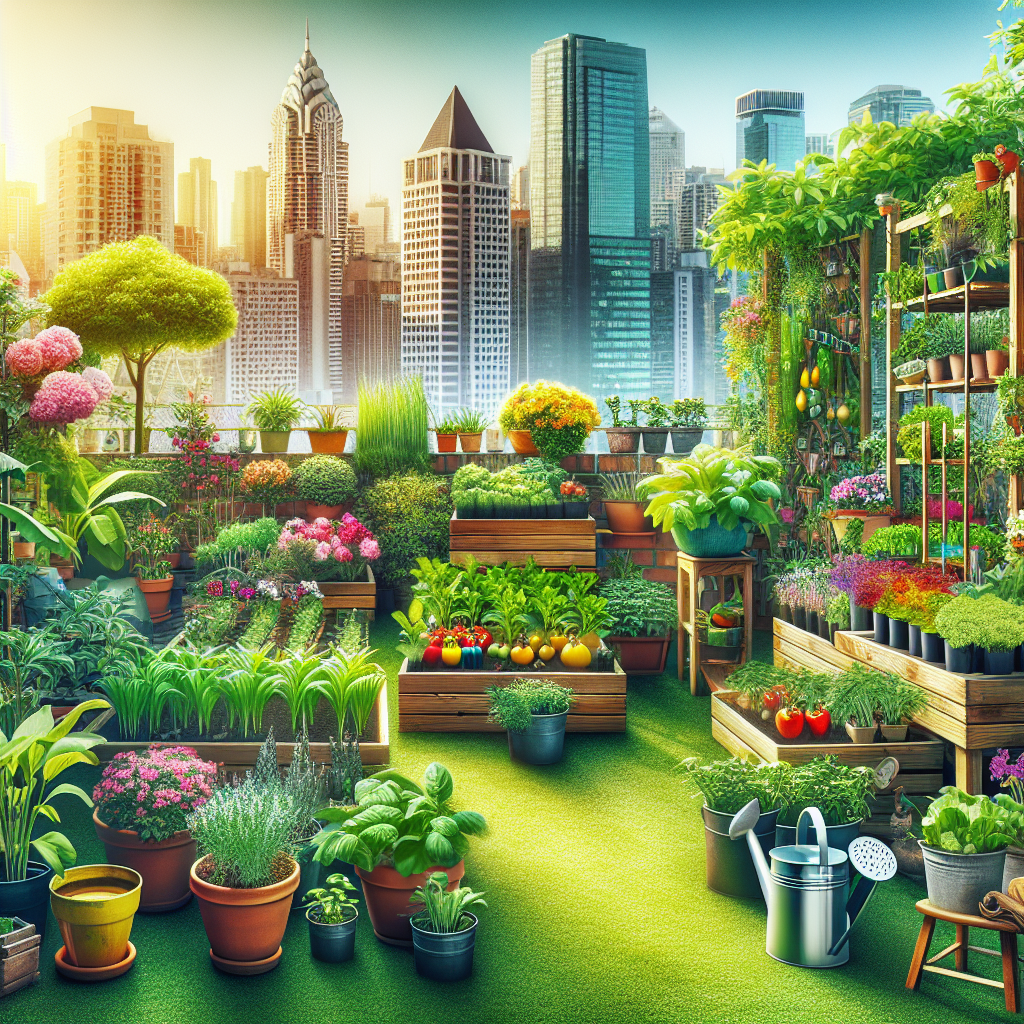
Embarking on a Portland urban garden installation can be a rewarding endeavor, especially when following a clear, step-by-step guide. Here’s how you can get started:
- Plan and Design: Begin by sketching out a design of your garden space. Consider the layout, plant placement, and any features such as raised beds, pathways, or trellises. Take into account the sunlight patterns, existing structures, and access to water sources.
- Prepare the Soil: Once you have your design, it’s time to prepare the soil. Remove any weeds, rocks, or debris from the area. Conduct a soil test to determine its composition and amend it with organic matter or compost to improve fertility and structure.
- Install Hardscapes: If your garden design includes hardscaping elements like raised beds, pathways, or irrigation systems, install these first. Raised beds can be constructed from wood, stone, or metal and help to improve drainage and soil quality.
- Planting: Begin planting according to your design plan. Start with larger trees or shrubs, followed by smaller plants and ground cover. Ensure each plant is placed at the correct depth and spacing. Water them thoroughly after planting.
- Mulching: Apply a layer of mulch around your plants to help retain moisture, regulate soil temperature, and suppress weeds. Organic mulches like wood chips, straw, or compost are beneficial as they break down and enrich the soil over time.
- Watering: Establish a watering schedule that meets the needs of your plants. Newly planted gardens require more frequent watering until the plants establish their root systems. Drip irrigation or soaker hoses can be efficient methods to deliver water directly to the roots.
- Maintenance: Regular maintenance is key to a thriving garden. This includes weeding, pruning, and monitoring for pests or diseases. Fertilize your plants as needed and keep an eye on their growth, making adjustments to your care routine as necessary.
By following these steps, you can create a lush and productive urban garden in Portland that will bring you joy and satisfaction throughout the seasons.
Maintaining Your Portland Urban Garden
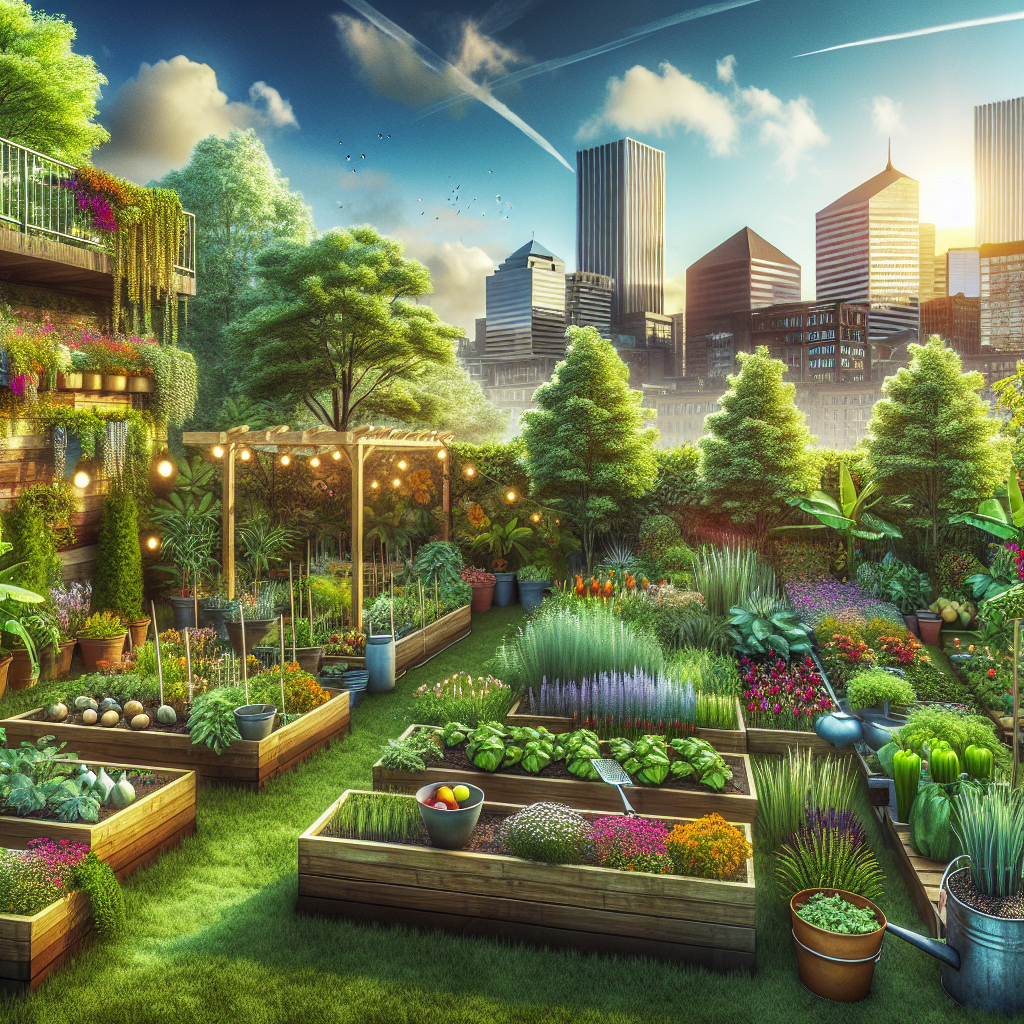
Once your Portland urban garden installation is complete, maintaining it is crucial to ensure its long-term health and productivity. Here are some essential tips for keeping your garden in top shape:
- Regular Watering: Consistent and appropriate watering is vital. It’s best to water early in the morning or late in the evening to minimize evaporation and ensure that plants have enough moisture to withstand the day’s heat. Use a drip irrigation system or soaker hoses to deliver water directly to the root zone.
- Pruning and Deadheading: Regular pruning helps manage plant size, promotes healthy growth, and increases air circulation. Deadheading, or removing spent flowers, encourages plants to produce more blooms and prevents disease.
- Weed Control: Weeds compete with your plants for nutrients, water, and light. Regular weeding is essential to keep them at bay. Mulching can also help suppress weeds by blocking sunlight from reaching the soil surface.
- Fertilization: Plants need nutrients to thrive, so regular fertilization is important. Use organic fertilizers or compost to provide a balanced supply of nutrients. Be sure to follow the recommended application rates and schedules for the specific plants in your garden.
- Pest and Disease Management: Keep an eye out for signs of pests and diseases. Early detection and intervention can prevent serious damage. Use organic pest control methods, such as introducing beneficial insects, applying neem oil, or using insecticidal soaps.
- Soil Care: Healthy soil is the foundation of a thriving garden. Regularly add organic matter, such as compost, to keep the soil fertile and improve its structure. Avoid compacting the soil by minimizing foot traffic in planting areas.
- Seasonal Clean-Up: At the end of each growing season, clean up your garden by removing dead plants, fallen leaves, and other debris. This helps prevent the spread of pests and diseases and prepares your garden for the next planting season.
By diligently maintaining your urban garden, you can enjoy a beautiful, productive space that enhances your Portland property and provides a haven for local wildlife.
Sustainable Practices for Urban Gardening
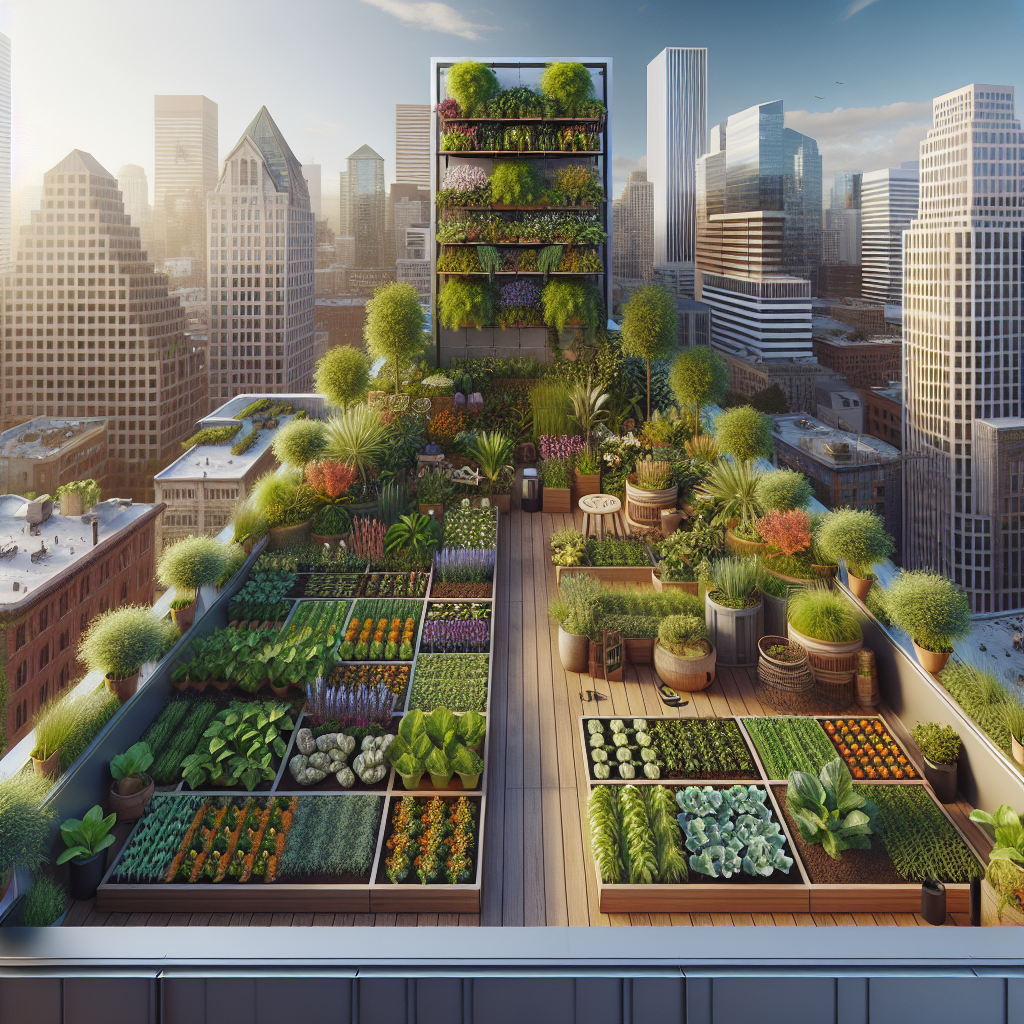
Incorporating sustainable practices into your Portland urban garden installation ensures that your garden not only thrives today but also contributes positively to the environment for years to come. Here are some effective sustainable gardening practices to consider:
- Water Conservation: Use rain barrels to collect rainwater for irrigation. Installing a drip irrigation system can also minimize water waste by delivering water directly to the plant roots. Mulching helps retain soil moisture, reducing the need for frequent watering.
- Composting: Turn kitchen scraps and garden waste into nutrient-rich compost. Composting reduces landfill waste and provides an excellent, organic fertilizer for your garden.
- Native Plants: Select plants that are native to the Portland area. Native plants are well-adapted to the local climate and soil conditions, requiring less water and fewer chemical inputs than non-native species.
- Integrated Pest Management (IPM): Instead of relying on chemical pesticides, use IPM strategies to control pests. This includes encouraging beneficial insects, rotating crops, and using physical barriers like row covers.
- Low-Impact Landscaping: Implement xeriscaping principles by choosing drought-tolerant plants and reducing lawn areas. This minimizes water use and reduces the need for lawn maintenance equipment that contributes to air pollution.
- Pollinator-Friendly Practices: Create habitats for pollinators by planting a variety of flowering plants that bloom at different times. Avoid using pesticides that can harm bees and other beneficial insects.
- Energy-Efficient Gardening: Use manual tools or electric-powered gardening equipment instead of gas-powered alternatives. Incorporate solar lighting and other renewable energy sources into your garden design.
Adopting these sustainable practices not only makes your urban garden more eco-friendly but also enhances its resilience and beauty. By committing to sustainability, you contribute to the health of the local ecosystem and set a positive example for your community.
Contact us today to discover how our landscaping services can transform your property! Visit Yard Service PDX for more information.

